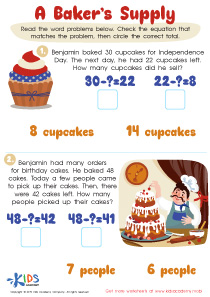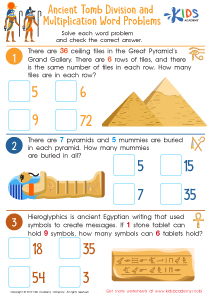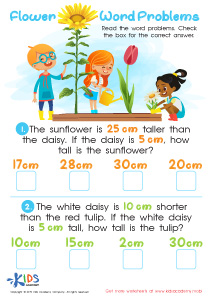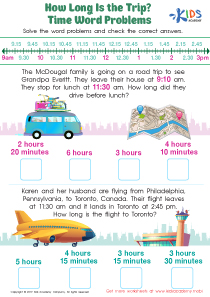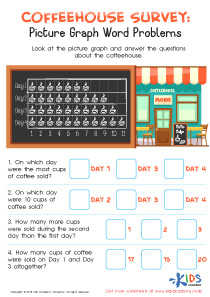Easy Two-step Word Problems Worksheets for Ages 4-5
5 filtered results
-
From - To
Introducing our Easy Two-step Word Problems worksheets, tailored specifically for children aged 4-5 years. Perfect for early learners, these educational online printables are designed to build foundational math skills in a fun and engaging way. Each worksheet features simple, age-appropriate problems that require two steps to solve, encouraging young minds to think critically and develop problem-solving abilities. Ideal for both home and classroom use, our printables help kids make meaningful connections with numbers while boosting their confidence. Get ready to watch your little ones enjoy learning as they tackle each challenge on their journey to becoming math whizzes!
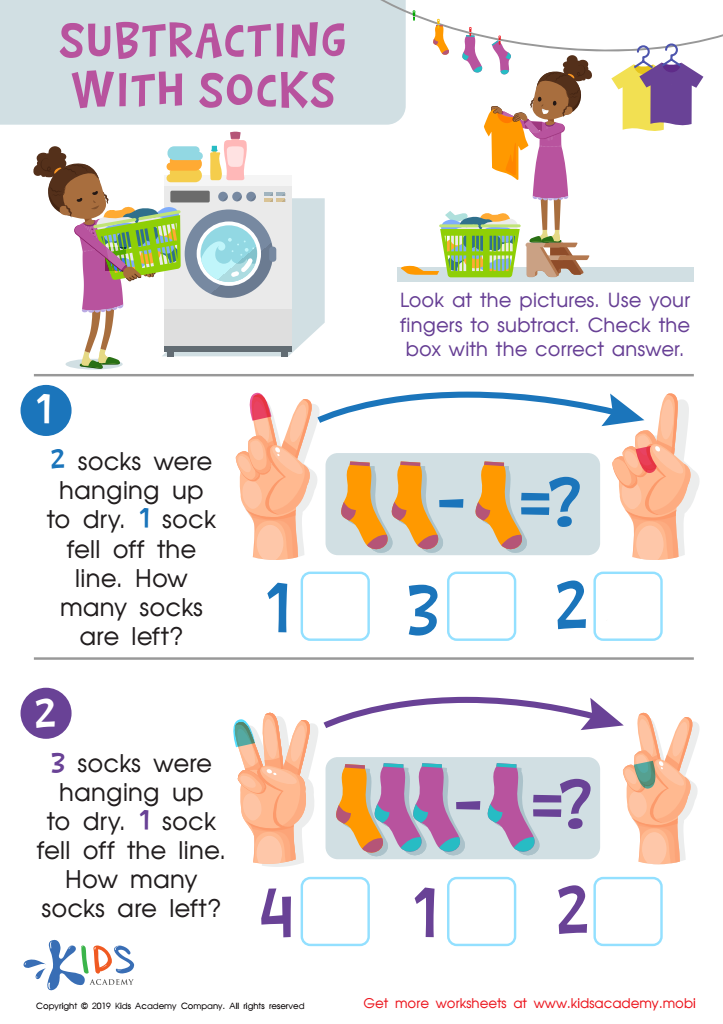

Subtracting Socks Worksheet


Counting Seedlings Worksheet
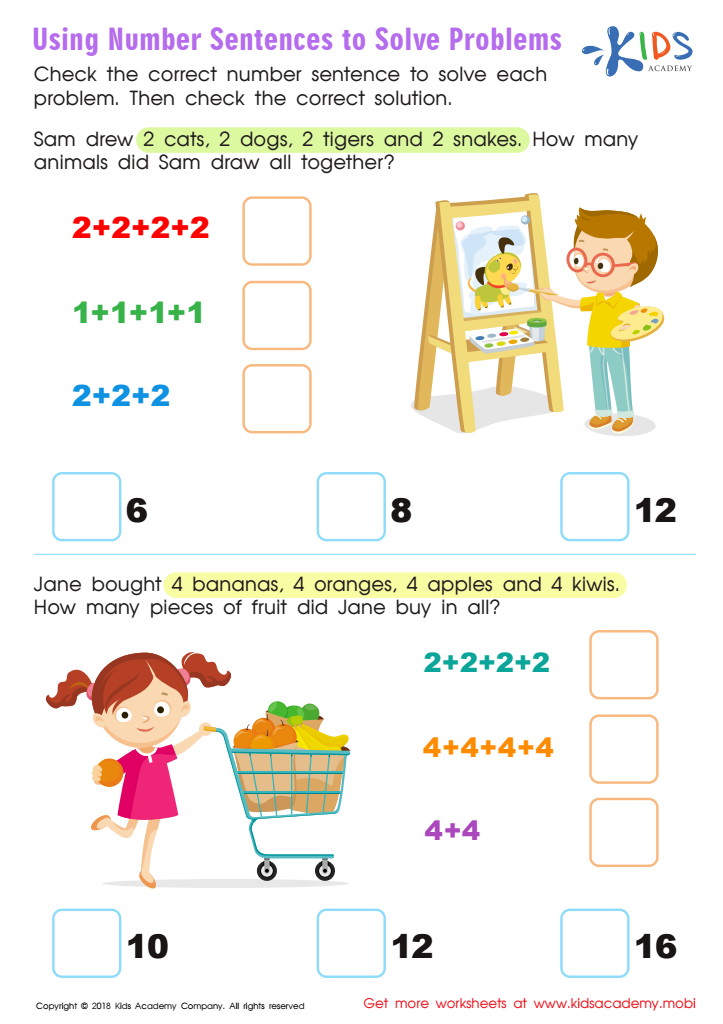

Using Number Sentences to Solve Problems Worksheet
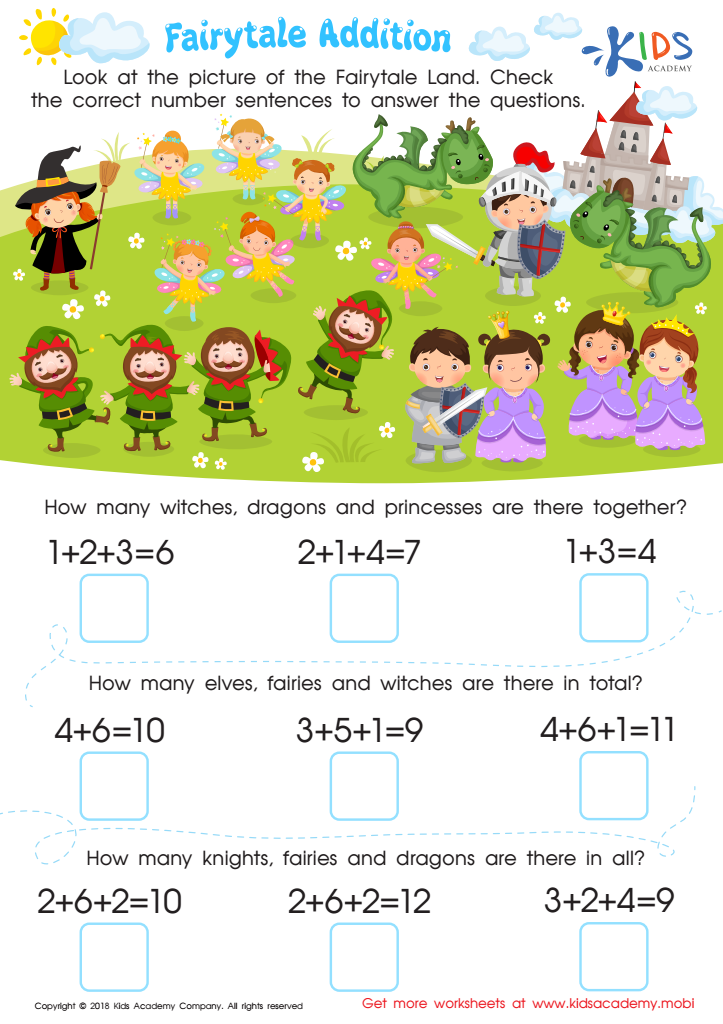

Fairytale Addition Worksheet
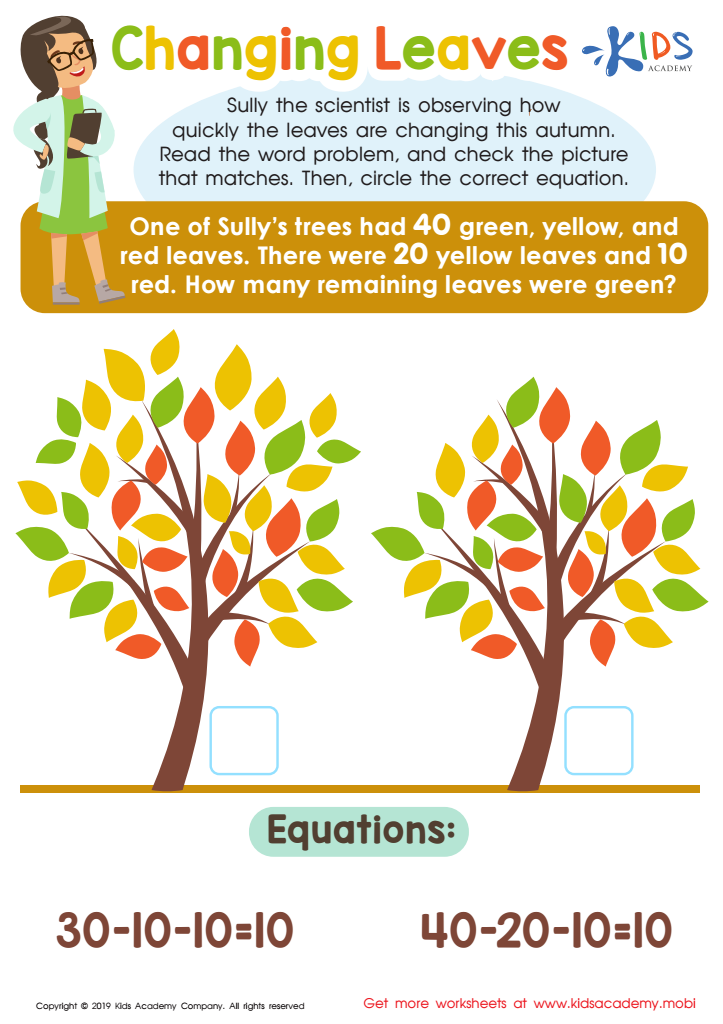

Changing Leaves Worksheet
The Value of Educational Interactive Worksheets on Two-Step Word Problems for Young Children
In the foundational years of education, nurturing a child’s cognitive abilities through engaging and appropriately challenging activities is paramount. For children aged 4-5 years, educational interactive worksheets, particularly those focusing on two-step word problems, are a fantastic resource. These worksheets not only stimulate young minds but also blend learning with enjoyment, paving the way for a lifelong love of learning.
Why Focus on Two-Step Word Problems?
Two-step word problems are an excellent exercise for developing critical thinking and problem-solving skills in young learners. At the age of 4-5, children are just beginning to grasp basic arithmetic concepts such as addition and subtraction. Two-step word problems introduce them to situations where they need to apply these concepts sequentially, mimicking real-life problems.
For instance, a problem might state: "Sarah has 3 red apples. Her mom gives her 2 more red apples, and then Sarah eats 1 apple. How many red apples does Sarah have now?" Here, the child needs to add 3 and 2, and then subtract 1 to find the answer. This simple scenario involves two actions, helping the child practice arithmetic in a context that they can understand and relate to.
Benefits of Educational Interactive Worksheets
-
Enhanced Engagement: Educational interactive worksheets are designed with young children in mind, featuring colorful graphics, simple interfaces, and intuitive controls. This visual and interactive approach keeps children engaged much more effectively than traditional pen-and-paper methods.
-
Instant Feedback: One of the great advantages of interactive worksheets is the instant feedback they provide. Children can immediately see the results of their problem-solving efforts, which is crucial for their developing understanding of cause and effect. This immediate reinforcement helps boost their confidence and encourages them to tackle more complex problems.
-
Development of Fine Motor Skills: As children navigate through educational interactive worksheets, they also improve their fine motor skills by clicking, dragging, and typing. These activities are essential for the physical development of young children, enhancing their hand-eye coordination and precision.
-
Customizable Learning Paths: Interactive worksheets can be easily adjusted to suit the learning pace and level of each child. This customization ensures that every child remains neither under-challenged nor overwhelmed, facilitating an optimal learning experience that is tailored to their individual needs.
-
Parental Involvement: Educational interactive worksheets offer an excellent opportunity for parents to be involved in their children's learning journeys. These tools often include features that allow parents to track progress, identify areas where their child may need more support, and even participate in interactive sessions. This involvement is crucial, as it strengthens the bond between the child and parent, and actively demonstrates the value of learning in everyday life.
Building a Strong Foundation
The skills developed through solving two-step word problems are foundational not just in mathematics but in many areas of life and future learning. By encouraging logical thinking, sequential processing, and problem-solving, educational interactive worksheets prepare children for more complex mathematical concepts and other subject areas.
Moreover, by integrating learning with technology, these worksheets help children become familiar with digital tools, an essential skill in today’s tech-driven world. This early exposure can help diminish any apprehension towards technology-related tasks in the future.
Cultural and Contextual Relevance
It’s also important that these worksheets are culturally and contextually relevant, incorporating scenarios that children can relate to, which makes the problems more engaging and understandable. Whether it’s dealing with objects like toys, familiar foods, or common household activities, the problems should resonate with their everyday experiences, making learning relevant and meaningful.
Conclusion
Educational interactive worksheets on two-step word problems are more than just an academic tool; they are a comprehensive educational experience that enhances intellectual, digital, and motor skills in young children. By integrating these into early childhood education, we equip our children not just with the ability to solve mathematical problems but with a broader set of skills that are vital in all areas of learning. As they grow, these foundational skills ensure that children are confident, capable, and ready to tackle more complex challenges, both in school and in life.
 Assign to the classroom
Assign to the classroom
